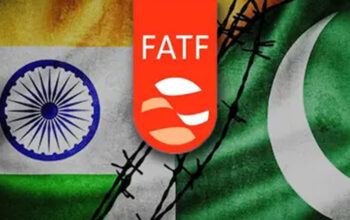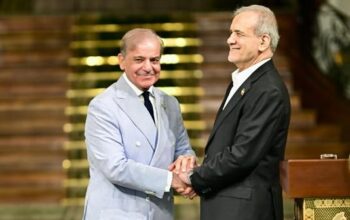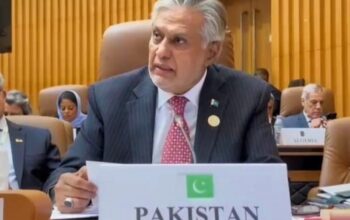By Staff Reporter
ISLAMABAD: The government will roll out foreclosure laws to spur bank lending in the housing sector and clamp down on tax evasion to formalise its cash-reliant economy, Finance Minister Muhammad Aurangzeb said Friday.
The reforms, part of the Finance Bill, 2025, aim to tackle chronic housing and revenue challenges as the government briefs the Senate Standing Committee on Finance and Revenue.
Aurangzeb told the committee, chaired by Pakistan Peoples Party senator Saleem Mandviwalla, that foreclosure laws are on the way to unlock financing for the housing market.
Alongside this, the government will roll out a mechanism to eliminate non-filers, those not registered with tax authorities, to bring more transactions into the documented economy. The moves signal a push to bolster a sector long constrained by informal cash flows and limited credit access.
The minister stressed that the budget steers clear of new taxes, relying instead on enforcement to raise revenue. “We have not imposed any new tax in the budget. Instead, we have taken new tax measures worth Rs312 billion through compliance and enforcement,” Aurangzeb said.
He confirmed the approach has the backing of the International Monetary Fund (IMF), aligning with commitments to strengthen tax collection without broadening the tax base.
Separately, Federal Board of Revenue (FBR) Chairman Rashid Mahmood Langrial assured lawmakers that banking taxation rules have been refined in consultation with the State Bank of Pakistan (SBP). “The extraordinary treatment given to banks in terms of taxation has been reviewed,” Langrial said, noting that new provisions will prioritise transparency in assessing banks’ income and tax obligations.
Aurangzeb spotlighted export growth as a bright spot, with shipments climbing 7.8% this fiscal year. “Last year’s exports were $29 billion, this year we have already hit $30 billion in 11 months,” he said. Trade bottlenecks have also eased, he added, dismissing claims of delays in opening Letters of Credit (LCs). “There are no longer obstacles to opening LCs, and anyone saying otherwise is spreading misinformation.”
But external pressures loom large. Aurangzeb pointed to India’s efforts to stymie Pakistan’s economic lifelines, including a failed bid to block a $700 million funding package from the International Finance Corporation (IFC), approved at a World Bank Board meeting in Washington. “India tried again like it had attempted in creating hurdles in the approval of the IMF loan. This time again India failed,” he said. “It is a significant economic diplomatic victory for Pakistan and a major setback for India, which had actively lobbied against the funding.”
On privatisation, Aurangzeb conceded setbacks. “It must be accepted that privatisation targets were not achieved,” he said, though he offered a glimmer of progress: “PIA has now been brought back into the privatisation stream.” The government is betting on offloading state-owned assets like Pakistan International Airlines to shore up finances.
Agricultural taxation, a perennial sticking point, also drew a firm line. “Earlier, it was said agriculture tax can never be imposed. Now, they say it can’t be collected. We will collect it—just give us the chance,” Aurangzeb asserted. Provinces are slated to start collecting agricultural income tax from July 1, 2025, a move aimed at tapping a sector historically shielded from federal levies.
The government is tweaking tax thresholds to balance revenue needs with relief for taxpayers. The limit for an enhanced withholding tax on cash withdrawals by non-filers will rise from Rs50,000 to Rs75,000, with the rate ticking up from 0.6% to 0.8%, Langrial told the National Assembly Standing Committee on Finance.
The adjustment, finalised after debate, fell short of a proposed Rs100,000 cap suggested by committee chairman Naveed Qamar. Langrial clarified to reporters that an erroneous 1% rate cited in the budget speech was a mistake—the correct rate is 0.8%.
For salaried workers, relief is in sight. Minister of State for Finance Bilal Azhar Kayani said tax rates for income up to Rs3.2 million will ease, targeting lower and middle earners. However, a proposed 1% tax on incomes between Rs600,000 and Rs1.2 million was bumped to 2.5% by the federal cabinet, reflecting a 10% salary hike for government employees. “Due to limitation of fiscal space, the tax rate was proposed to be increased from one percent to 2.5 percent,” Kayani explained.
The FBR also plans a slight rollback of the super tax under Section 4C of the Income Tax Ordinance. Rates for incomes between Rs200 million and Rs500 million will dip by half a percentage point per slab. “Very slight reduction has been made in the rates of the super tax in budget 2025-26 to give a signal to the corporate sector that the government is committed to reduce burden of taxes on compliant sectors,” Langrial said.
Copyright © 2021 Independent Pakistan | All rights reserved




